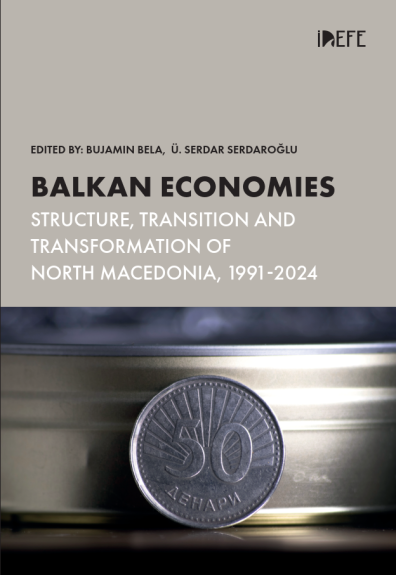Balkan Economies
The Impact of Fdi on Economic Growth and Develeopment in North Macedonia Since 1991
Authors
-
Bukurije Imeri JusufiAssist. Prof. Dr., Mother Teresa University, Skopje-North Macedonia
-
Burim LatifiAssist. Prof. Dr., Mother Teresa University, Skopje-North Macedonia
Synopsis
After World War II, foreign direct investments (FDI) gained significant importan-ce in the international economy. Considering the increasing global population growth rate, economic growth is viewed as a key mechanism for maintaining the standard of living in society.
According to a group of authors, Borensztein et al. (1998), FDI impacts economic growth by serving as an engine of technological diffusion from the developed world directed toward the target country. However, there are also theorists and studies that prove the opposite, namely the negative impact of FDI on economic growth. According to other researchers, such as Elkomy et al. (2016), based on an empirical analysis conducted across 61 developing and transitioning countries from 1989 to 2013, domestic investments are a more significant driver of econo-mic development in democratic states than FDI.
Copyright
Copyright (c) 2025 Bujamin Bela (Volume editor); Marica Antovska Mitev, Tatjana Drangovska, Bekim Fetaji, Veland Ramadani, Blerta Kondri, Burim Latifi, Bukurije Imeri Jusufi, Neritan Turkeshi, Violeta Madzova, Arbresh Raveni, Dr. Sevba Abdula (Chapter Author); Üzeyir Serdar Serdaroğlu (Volume editor)
License

This work is licensed under a Creative Commons Attribution-NonCommercial 4.0 International License.
Downloads
Publication Information
-
Publication TypeChapter
-
Volume
-
Pages141-176
-
PublishedJune 5, 2025
-
Series
-
Series PositionResearch 10
Bela, B., & Serdaroğlu, Üzeyir S. . (Eds.). (2025). The Impact of Fdi on Economic Growth and Develeopment in North Macedonia Since 1991. In Balkan Economies Structure, Transition and Transformation of North Macedonia, 1991-2024: Vol. Research 10 (pp. 141-176). Idefe Publications. https://doi.org/10.51331/EB08BI
